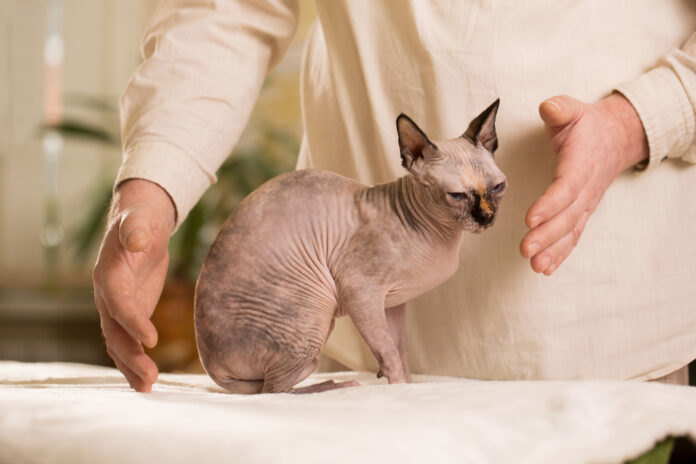How Manuka Honey Helps Heal Wounds in Dogs

You’ve likely heard about Manuka honey, and that it offers health benefits that go beyond those of regular honey. What exactly is it, and why is it so helpful for healing wounds in your dog?
While honey is primarily a food product, it has also been used historically for its healing properties. As a cough suppressant, a treatment for gingivitis, and a general dietary supplement, honey has a lot to offer. Manuka honey is especially beneficial, not just for us but for our dogs as well. Let’s take a closer look at Manuka honey, and why it works so well as a wound treatment for dogs.
WHAT MAKES MANUKA HONEY DIFFERENT?
Honey contains a number of beneficial probiotics and prebiotics, as well as minerals and vitamins. However, the botanical source of the nectar the honey comes from determines its exact makeup. This means the composition of a honey product varies widely depending on its geographical origin.
Manuka honey is produced by bees that feed on the nectar of Manuka trees, which are native to New Zealand and parts of Australia. Manuka honey has over 2,000 natural compounds, 30 of which are unique to this type of honey alone.
The first known use of Manuka honey was in ancient Egypt, where it was used to treat wounds. For centuries, Chinese herbalists have used it in many traditional medicines.
Recently, Manuka honey has been gaining popularity as an oral product to help boost the immune system, and as a topical agent to enhance wound healing.
WHY IS IT GOOD FOR WOUNDS?
Manuka honey was FDA-approved for wound treatment in the US after studies demonstrated its ability to inhibit a variety of bacterial species, and facilitate wound healing. It is particularly effective at promoting healing in burn wounds, and in those infected with MRSA and other bacteria.
 Manuka honey’s superior antibacterial properties are thought to be primarily due to the enzyme glucose oxidase, which produces hydrogen peroxide when placed on a wound. When hydrogen peroxide comes into contact with a bacterial cell wall, it releases oxygen and disrupts the cell wall, a process known as oxidation. This reaction is triggered as honey becomes diluted by wound exudate, so when honey is placed on an open wound, the hydrogen peroxide is slowly released over time.
Manuka honey’s superior antibacterial properties are thought to be primarily due to the enzyme glucose oxidase, which produces hydrogen peroxide when placed on a wound. When hydrogen peroxide comes into contact with a bacterial cell wall, it releases oxygen and disrupts the cell wall, a process known as oxidation. This reaction is triggered as honey becomes diluted by wound exudate, so when honey is placed on an open wound, the hydrogen peroxide is slowly released over time.
This reaction is more effective at inhibiting bacteria than a pure solution of hydrogen peroxide, which is very quickly degraded by biological enzymes and so has a limited short-term antiseptic effect on open wounds.
Methylglyoxal (MGO) is another component of Manuka honey with antibacterial and anti-inflammatory properties. It is produced when glucose oxidase breaks down dihydroxyacetone.
CHOOSING A MANUKA HONEY PRODUCT
- Keep in mind that while Manuka honey can help heal wounds, it should not be used to replace veterinary care when dealing with serious injuries or infections.
- Not all Manuka honey products are created equal. Some may contain a high pollen count, and rare allergic reactions may occur in a few animals. If your dog has any known allergies or sensitivities, it may be best to consult your veterinarian before using Manuka honey.
- A product’s potency is rated according to its polyphenol content. Polyphenols are plant compounds with numerous health benefits due to their antibacterial, antiseptic, and anti-inflammatory properties. The Unique Manuka Factor (UMF) is the commonly used ranking system for Manuka honey. Specifically, it assesses the levels of hydrogen peroxide, methylglyoxal, and leptosperin (a marker for pure Manuka honey) in the product. The higher the UMF rating, the higher the concentration of these compounds and the more potent the honey is. Other types of honey contain fewer polyphenols, which means they have fewer medicinal benefits than Manuka honey.
Manuka honey is generally regarded as safe for dogs. It won’t hurt your dog if he ingests it, although it’s best to place a bandage over the wound you’re treating to prevent him from licking it off — which he’ll probably try to do because he’ll enjoy the honey’s flavor!
AUTHOR PROFILE
Theresa W. Fossum, DVM, MS. PhD, Diplomate ACVS
Theresa W. Fossum, D.V.M., M.S., Ph.D., DACVS is currently CEO of Epic Veterinary Specialists and CEO and Co-Founder at Dr. Fossum’s Pet Care.
Dr. Fossum was previously the Vice President of Research and Strategic Initiatives and a Professor of Veterinary Surgery at Midwestern University. Dr. Fossum is responsible for overseeing the development of the Midwestern University Institute for Healthcare Innovation (IHI) including but not limited to clinical trials, new research funding programs and related work that impacts the One Health philosophy of Midwestern University.




